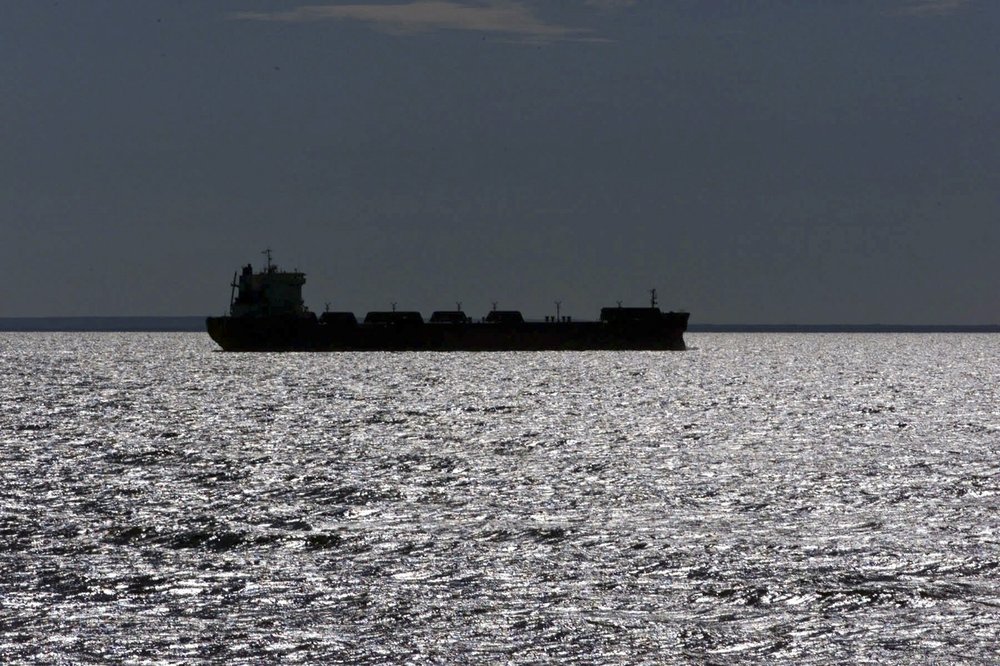National
Senate OKs Coast Guard bill with ballast water compromise

TRAVERSE CITY, Mich. (AP) — The U.S. Senate approved a compromise policy Wednesday on dumping ship ballast water in coastal ports and the Great Lakes, a practice blamed for spreading invasive species that damage the environment and the economy.
The plan, part of a $10.6 billion Coast Guard budget authorization bill, includes provisions sought by environmentalists as well as the cargo shipping industry. They have battled for years over how to regulate disposal of water stored in tanks that is essential for steadying vessels in rough seas but has brought unwanted mussels, fish and even viruses to U.S. waters.
Under the bill, approved 94-6 and sent to the House for consideration, the Environmental Protection Agency would set national rules for ballast and other water discharges while the Coast Guard would enforce them. An earlier version backed by industry would have put the Coast Guard in charge of regulation and exempted ballast from the Clean Water Act, which environmentalists feared would result in weaker requirements for treating the water before it’s released.
But in a victory for shippers, states would be prohibited from imposing tougher treatment rules than EPA’s. Presently, 26 states have rules in addition to those on federal level, creating what the industry describes as a confusing regulatory patchwork. Environmentalists contend states should be able to exceed federal standards to safeguard their waterways.
The bill creates an exception for the Great Lakes, where damages and control costs from quagga mussels and other exotic organisms reach $200 million annually. Regional requirements could be imposed there if enough of the eight states that border the lakes want them.
Republican Sen. Rob Portman of Ohio and Democratic Sen. Debbie Stabenow of Michigan, co-chairs of the Senate Great Lakes Task Force, said EPA policy required under the bill “will help prevent pollution and ensure that that ballast water does not transport invasive species from one body of water to another along a vessel’s shipping route, while providing greater regulatory certainty for the shipping industry.”
Debate will persist even if the measure is enacted. Federal policy currently limits numbers of live organisms in ballast water before it’s discharged, based on international standards that environmentalists contend are too weak. A federal court has ordered EPA to strengthen the standards, noting the availability of treatment tools such as chlorine, ultraviolet light and filtration. Shippers contend available technology can’t hit the cleanliness targets environmentalists want.
EPA will grapple with such issues as it develops national rules.
Still, both sides praised the bill. The Lake Carriers’ Association, representing Great Lakes cargo shippers, said it strikes a “good balance,” while an environmentalist coalition said it “upholds many core protections to prevent future invasions.”
The bill authorizes $10.6 billion for the Coast Guard in fiscal year 2019, a roughly 16 percent increase from 2017 that would help modernize its aging fleet of cutters and aircraft. The Coast Guard is the primary federal authority for maritime safety and security on the U.S. coast and in ports and inland waterways.
“Passing it will ensure the Coast Guard has the tools it needs to continue to carry out its many important missions,” said Sen. Bill Nelson, a Florida Democrat.
The measure also contains provisions to help the agency crack down on drug smuggling and enforce borders through use of informants and greater cooperation with other agencies. It also boost efforts to place and maintain navigational aids and enter less expensive contracts for acquiring the largest and most technologically advanced cutters.
Other provisions would create a Coast Guard center to develop responses to oil spills in the Great Lakes and other freshwater environments and authorize funding to design and build a National Coast Guard Museum in New London, Connecticut.







